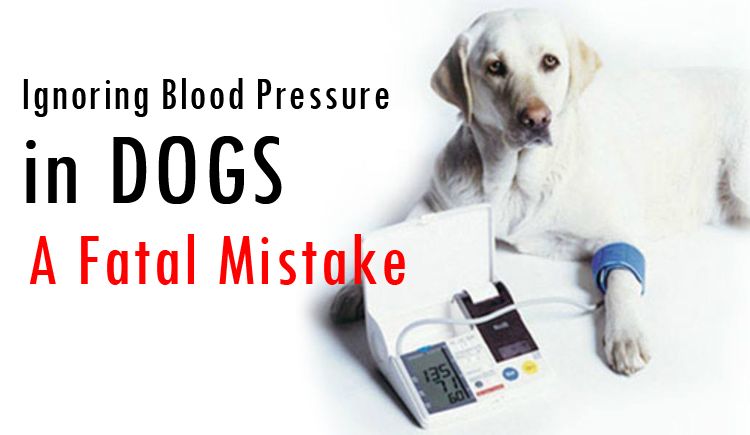When most of us think about high blood pressure (also known as hypertension) the very first thing that comes in our mind is our human companions who are suffering from this disorder whether it is your friend, family member or relative. But no one would ever imagine that even your Fido can get affected by this disease. Although it is uncommon, it does happen, and the reason for high blood pressure in dogs is quite different than the human counterparts.
In human beings the major reason for contracting this disease is due to primary or essential hypertension, which can be caused due to excessive salt intake, high fat foods, high stress life, and even smoking but dogs do not have to deal with these problems. So why do they contract this disease? The reason for that is dogs develop secondary hypertension, which is generally associated with an underlying medical condition.
Let us now look at some of the dangers lurking on pooches when they have high blood pressure. The blood vessels of the doggie can be considered as a small garden hosepipe. If the water pressure is turned up very high the hosepipe can blow up. The same thing can happen in your pooch’s body just that in place of water going everywhere blood flows and then multiple small bleeds can cause critical health disorders in pooches.
A high blood pressure can cause the following disorders in pooches:
- Blindness/vision change
- Blood clots in the brain
- Kidney failure
- Multiple organ damage
The root cause of high blood pressure in dogs
Usually high blood pressure in dogs signals the occurrence of a disease. Some of these diseases include:
- Acromegaly – Body producing too much growth hormone
- Chronic kidney disease
- Cushing’s disease
- Diabetes mellitus
- Pheochromocytoma – too much adrenaline produced by a tumor of the adrenal gland
- Polycythemia – Occurrence of too many red blood cells
Symptoms of high blood pressure in dogs
- Bleeding from the nose
- Blood in urine
- Difficulty in seeing
- Dilated pupils
- Enlarged thyroid gland
- Fast heart rate
- Misshapen kidneys
Diagnosis of high blood pressure in dogs
If you find any of the symptoms mentioned above, it is recommended to rush to your veterinarian immediately. He/she will conduct a physical examination, including taking blood pressure readings (similar to the way doctors check the blood pressure of human beings). It will take several readings during the visit to verify the accuracy of the results.
Most human beings are aware that normal blood pressure measurement in humans is “120 over 80” which represents a systolic blood pressure of 120 and a diastolic blood pressure of 80. These same values do not hold true in case of pets. Even a normal veterinarian visit can increase the blood pressure of dogs, hence, the normal blood pressure measurement in dogs is a little higher of up to “160 over 100”. Most veterinarians rely on systolic blood pressure readings because it is quite difficult to obtain diastolic blood pressure in dogs with small size.
If the veterinarian suspects hypertension i.e.; a systolic blood pressure of more than 180, he/she will run further tests to determine the cause of the disease. Once the veterinarian gets to the root cause of high blood pressure he/she will treat the disease along with the high blood pressure.
Your veterinarian may then recommend benazepril or amlodipine to treat high blood pressure in your pooch. If your doggie is suffering from kidney disease, then he/she may prescribe Azodyl to slow down uremic toxic buildup and prevent further damage in the kidneys of the dog. Remember, high blood pressure is very fatal for the health of your tyke. Hence, it is very important to have vital knowledge on this subject just in case you face this tough situation with your pet. So how do you plan to combat high blood pressure in your doggie?
Follow Us for more Dog Care related tips…





